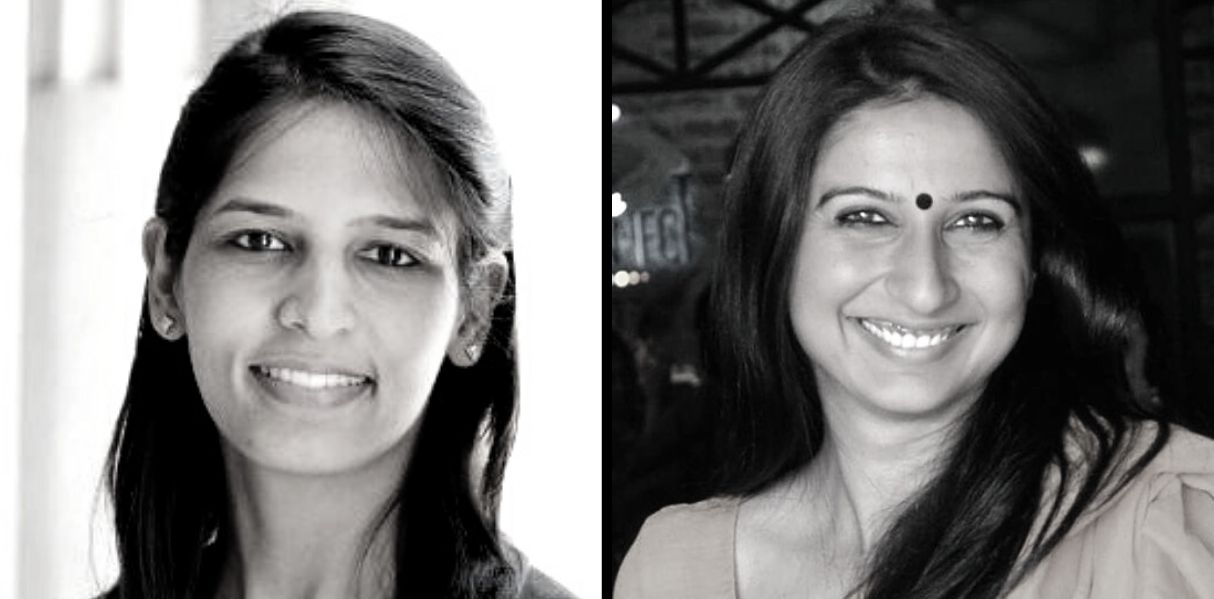Written by: Rajkanya Mahapatra
Mansi Verma is a Senior Investment Manager at Ventureast. Her career spans over a decade in the venture capital and private equity industry. Ms. Verma graduated from the Birla Institute of Technology with a B.Tech in Computer Science, and later got an MBA in Finance and Marketing from IIM Lucknow.
In conversation with, Pallavi Pareek, Founder and CEO, Ungender, Mansi discusses the many facets that need consideration when we think of gender representation and participation within the venture capital space, right from education to constant mentorship for young women joining the industry.
Pallavi: At what point did the gender ratio in venture capital firms and in the startup ecosystem become visible to you?
Mansi: That’s a very pertinent question. It’s something that is always there, alongside where we work, where we exist but it actually hits you when you take up any kind of educational courses or when you start working.
For me, I think that realization happened that there is an issue with the gender representation of women in India when I was in my final year of MBA. There was a lot of buzz around the campus that certain multinational firms are looking to shortlist women candidates, but where were the women candidates in MBA? They had a hiring mandate of getting 50 percent women on board. That was a mandate back in 2008 – 2009. In stark contrast was our graduating batch, we were 330 students, out of which there were only 30 women.
The recruiters task was very hard. I actually sympathized with the recruiter at that point because you can never achieve a 50 percent hiring ratio even though the company makes it a priority, even though you recognise that things need to improve. In India, 50 percent of the population are women whereas only 25 percent of women are there in the workforce. When you look at the Indian startup ecosystem, the numbers are skewed. When you look at the number of companies which have received venture funding, there are only 17 percent startups that are women-led or women founded. The startups that have only female founders on the founding team is only 6 percent.
Now, we need to ask, is that number something that we should be comfortable with? Why is that number the way it is? I feel I’ve pondered over this a lot. When I’ve evaluated my friends, both men and women, and I look at the kind of circumstances that they have to deal with. The conditions for a woman entrepreneur are definitely much more challenging. They’re more difficult not because of capability issues. There are cultural and social biases against women, which still exist, no matter how much acceptance there is for women in the workplace.
At some level, that acceptance dwindles. That acceptance, I think, dwindles even more when you look at tech-based professionals. It’s not very easy for people to reconcile with women being in a tech lead role. To me a bigger problem are cultural biases that exist, and they exist in the mind of both men and women. We need to then decide, okay, what do we need to do to change this? How do we change the cultural biases against women in business? How do we increase access to finance and the ability for them to seek funding? To really break this nexus which exists today.
Pallavi: Why is women’s financial and economic inclusion important?
Mansi: The under representation of women into the workforce means that the GDP is not complete in its reflections. A woman as a caregiver at home is not paid anything. Her working hours, her capabilities, her cooking skills, her gardening skills are not being valued as such. There is definitely under representation right? Every woman is an economic asset. When we think of economic assets, we think of hard assets, we think of man as the bread earner of the family. Why not have more and more women also join the workforce?

The idea of recognizing a woman as an economic asset, and learning how including them in our lives, and see how it affects the nature of our businesses, how marketing firms think about, “Oh, there is a woman who’s a decision maker. She is an economically independent woman.” They then adapt their marketing and communication to cater to more women. More women in the workforce will change the way our businesses think about the products, services, and delivery. It started out in the West, and now it’s also catching up in India. Including women as part of the product construct, creates better companies, including women as part of the solution for those products and services, creates better businesses. All of this is a self fulfilling cycle.
Pallavi: Does gender play a role when investments are being considered and planned?
Mansi: I don’t think, at least, in the conversations that I’ve had with entrepreneurs that gender bias really comes upfront. But yes, we’ve seen that there are certain businesses that are more attuned to being founded by women, especially where the products are made for women. You know the feel for that product, the challenges and the core need for that can only be felt by a certain segment of people. That said, we, as investors also need to look for gender diversity, if not in the founding team, at least in the senior leadership team. Wherever I’ve looked, the more successful companies are known to have very diverse leadership teams.

There have been studies, whether you look at listed companies, unlisted companies, you go back 50 years in history, it is known that gender diverse companies are relatively more productive, and they have lower volatility in terms of investment returns as well.
I just want to clarify that gender doesn’t only mean woman, gender means there should be equal representation, there should be gender equality, you know, and only that leads to better outcomes. Fully women-centric businesses will still be stymied by lack of the other genders’ point of view. Balance is what we are looking for when we talk about ideal gender representation in a company.
Pallavi: What is your take on the abysmal number of women in leadership positions in venture capital firms?
Mansi: People typically choose their careers in their early 20s, right? Not enough young women have been choosing finance, right? Maybe because they don’t have that support system to tell them what challenges to anticipate and what the rewards are going to be. It’s both a pipeline and a progression issue which requires attention. Young women who do choose to take up finance in their life need constant mentoring and support to be able to understand how to make a lasting career out of finance.
It’s not really organically done because you don’t have many women role models. While the gender gap is narrow in the VC ecosystem today, we are seeing that in the junior level positions like associate, senior associates and support functions, the gender ratio is 35 to 40 per cent. The fact that we don’t have enough women in top positions in VCs is a concern. Enough research exists to show that the likelihood of an investor backing a woman-led business is also correlated to the presence of women and gender balance in the investors own team.

Within the private equity and venture capital, now we have very low gender issues and this does show up in the kind of, women startups which get funded, which at the global level is only 3 per cent and in India, it might be at 5 – 7 per cent. Right. So, there is definitely a need to look at the whole investing from a gender lens. I want to also make a caveat here, gender lens investing in its earlier form, when it had just come about because people had understood that women are not getting their due recognition. That was primarily because a lot of traditional investors felt that market forces and in efficient markets biases should work and over time, capital should move to the best opportunity. That didn’t happen on its own.
There are biases, there are preconceived notions that people have and they became mistrustful of the markets, efficiencies and their ability to bring the capital to the right people. The need for gender lens investing came up which initially meant to support women entrepreneurs but soon the scope has expanded to consider overall number of women in the workforce. Today, when we look at the gender lens itself, that also focuses on the women in the value chain of the startup – as suppliers, as bankers, as consumers.
Having a gender lens doesn’t solve the issue because it’s important that there be women at the helm of these gender lens focused funds, only then will that correlation happen. To explain further, why do women need to be there? Is it an affinity? No, it’s not an affinity for funding women-oriented businesses, it is the ability of women to network and find other women entrepreneurs, otherwise, women entrepreneurs are not very easy to find, they are not women are very bad at marketing themselves. They’re very bad at blowing their own horn. That is exactly what you need in this kind of industry. As women-owned businesses are very difficult to find, they just don’t show up in a search, and you need to have your inroads into a network where you can find like-minded women who are solving the needs that you want to focus on.
Women entrepreneurs also feel more comfortable engaging with women who are in those funds. They might feel better understood in terms of their challenges and constraints. Our ranking of 70 out of 77 nations on the female entrepreneurship doesn’t look good at all.
You can watch the full conversation on Ungender’s YouTube channel, here.
Ungender Insights is the product of our learning from advisory work at Ungender. Our team specializes in advising workplaces on workplace diversity and inclusion. Write to us at contact@ungender.in to understand how we can partner with your organization to build a more inclusive workplace.










